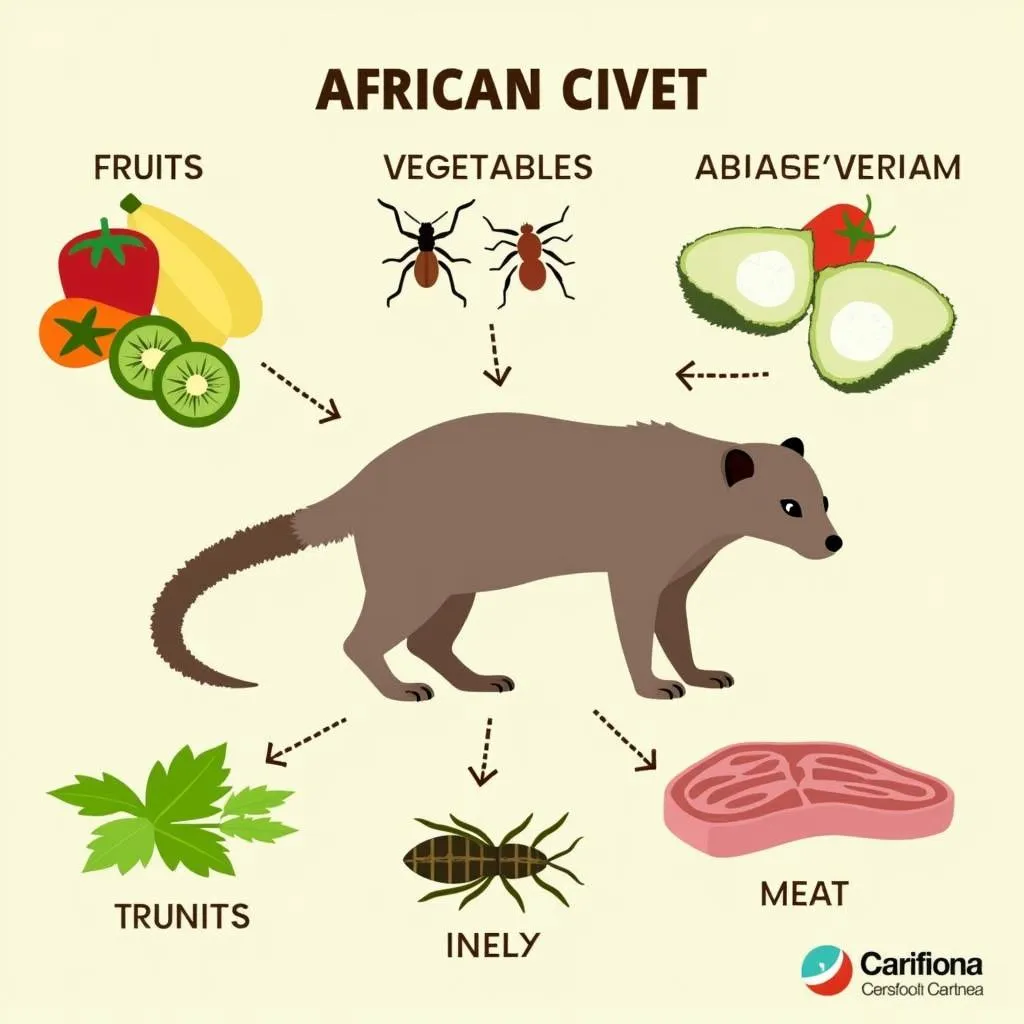African Civet Pet: A Guide to Understanding These Unique Animals
African civets are fascinating creatures that have long captured the attention of animal lovers worldwide. While they may seem like a quirky choice for a pet, these small, nocturnal mammals offer a unique and rewarding experience for those willing to dedicate themselves to their needs. This guide will provide comprehensive information about African civets as pets, addressing common questions and shedding light on their fascinating nature.
Are African Civets Good Pets?
African civets are not for everyone. They are demanding pets that require specialized care and a dedicated owner who can meet their specific needs. The decision to own an African civet should be based on thorough research and understanding of their requirements.
African Civet Species and Their Characteristics
There are several species of African civets, each with its own unique characteristics. Some popular species for pet ownership include:
- The African Palm Civet: These medium-sized civets are known for their striking black and white markings and their long, bushy tails. They are often found in forests and woodlands throughout Africa.
- The Genets: These smaller civets are often mistaken for cats due to their sleek, feline appearance. They are found in a variety of habitats, including forests, grasslands, and savannas.
- The Binturong: Also known as the “bearcat,” the binturong is the largest of the civets and is native to Southeast Asia. While not technically an African civet, it is often included in discussions about civet pets due to its similar appearance and behavior.
What to Know Before Getting an African Civet as a Pet
Owning an African civet is not like owning a dog or a cat. They have specific needs that require careful consideration:
- Habitat: African civets need a spacious enclosure with plenty of climbing opportunities and hiding places. They are highly active animals and need ample space to roam and explore.
- Diet: They require a specialized diet of fruits, vegetables, insects, and meat. It is important to provide them with a balanced diet to meet their nutritional needs.
- Socialization: African civets can be solitary animals, but they can also be social with humans and other animals. Early socialization is essential for developing a well-adjusted pet.
- Legal Considerations: Regulations vary depending on the location, so it’s crucial to research and understand the legal requirements for owning an African civet in your area.
The Benefits of Owning an African Civet
Despite the challenges, there are several rewarding aspects to owning an African civet:
- Unique and Fascinating: African civets are known for their intelligence, playful personalities, and unique appearance. They can provide a rewarding experience for those who are willing to put in the effort to care for them.
- Low Maintenance: Once their habitat is set up and their diet is established, African civets can be relatively low-maintenance pets. They are naturally clean animals and require minimal grooming.
- Social Companions: African civets can form strong bonds with their owners and enjoy spending time with their human companions.
African Civet Care: Essential Tips
To ensure the well-being of your African civet, it is crucial to understand their care needs:
- Enclosure: The enclosure should be large enough to allow the civet to move freely and should include climbing branches, hiding places, and a litter box.
- Diet: A balanced diet of fruits, vegetables, insects, and meat is essential. Consult with a veterinarian to develop a suitable feeding plan.
- Vet Care: Find a veterinarian who is familiar with exotic animals. Regular checkups and preventive care are essential for maintaining the health of your civet.
“African Civets are wonderful pets, but they require a committed owner who can meet their unique needs. It is important to research and understand their care requirements before making the decision to bring one home.” – Dr. Elizabeth Jones, Veterinary Specialist
Frequently Asked Questions
1. Are African Civets Legal to Own as Pets?
The legality of owning an African civet varies depending on your location. Some countries and states prohibit their ownership, while others allow it with specific permits or restrictions.
2. How Much Does an African Civet Cost?
The cost of an African civet can vary depending on the species, breeder, and location. You should expect to pay several hundred to several thousand dollars for a healthy, well-socialized civet.
3. Are African Civets Dangerous?
While African civets are generally not aggressive, they can be unpredictable and have sharp claws and teeth. They are wild animals and should be treated with respect. Proper handling and socialization can minimize the risk of bites.
4. Where Can I Find an African Civet Breeder?
You can find African civet breeders through online forums, exotic pet stores, and reputable wildlife rescue organizations.
5. What is the Lifespan of an African Civet?
The lifespan of an African civet can vary depending on the species and care provided. On average, they can live for 10-15 years in captivity.
Conclusion
Owning an African civet can be a rewarding experience, but it is crucial to understand the responsibilities involved. These animals require specialized care and a dedicated owner who can provide them with the appropriate environment and nutrition. Before bringing an African civet home, research their needs thoroughly, consult with a veterinarian, and consider your own lifestyle and resources to ensure you can meet their specific requirements.
 African Civet Enclosure
African Civet Enclosure
 African Civet Food
African Civet Food
 African Civet and Owner
African Civet and Owner
If you require further information, have any questions, or are ready to welcome an African civet into your life, please contact us. We are happy to provide assistance and guide you through the process of owning these fascinating creatures.
Contact Us:
- Phone: +255768904061
- Email: kaka.mag@gmail.com
- Location: Mbarali DC Mawindi, Kangaga, Tanzania
We have a dedicated team available 24/7 to answer your inquiries and support you throughout your journey with your African civet.

